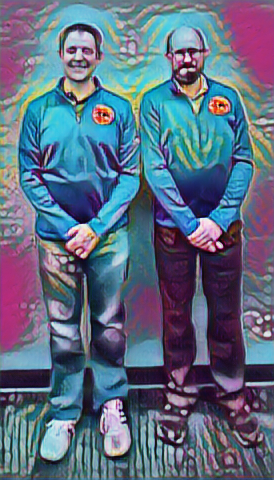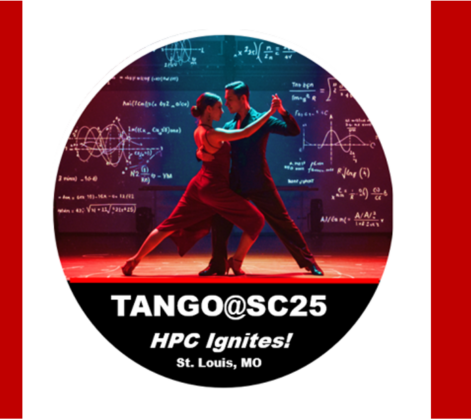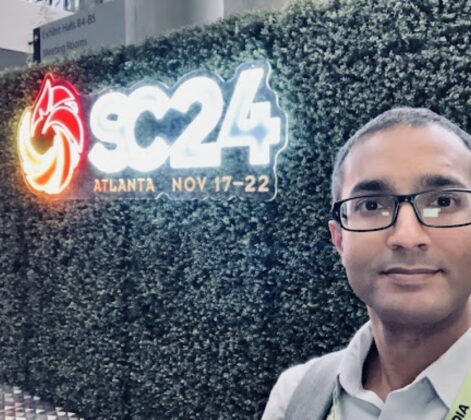Agenda: Drop-ins on Saturday are welcome. Otherwise, you must have registered, in advance, to participate in the Friday and Saturday evening events.
ART: Artificial intelligence (AI), Research computing and Training is for advanced cyberinfrastructure (CI) professionals who support research computing on their campuses and conduct outreach in rural K-20 education environments. We will explore the benefits and risks associated with AI in academia, and share strategies to protect data privacy, security and sovereignty. ART@SC24 will convene in Atlanta, Georgia November 15-16, ahead of the Supercomputing Conference, SC24, November 17-22.
This will be the sixth in a series of SC co-located workshops or events that STEM-Trek Nonprofit has hosted since 2015. The previous five were supported by the U.S. National Science Foundation (NSF; supplements to existing grants, or individual awards), and donations to STEM-Trek from Google and others. The first, in collaboration with Executive Director Dan Stanzione at the Texas Advanced Computing Center (TACC), was for systems administrators and research facilitators held just prior to SC15 in Austin, Texas. The second: “HPC On Common Ground@SC16,” focused on food security science. URISC@SC17 provided training on high-speed networks and best practices associated with cybersecurity. Funding lapsed in 2018-19, and activities were less communal at SC20-21 due to COVID (ScienceSlams were held online). In 2022, we held the first in-person workshop in five years titled, EarthSci@SC22. The workshop was a favorite among those who support climate, hydrology, wildlife conservation, wildfire mitigation, energy, and related research. NRG@SC23 supported our largest cohort to date; a convening to discuss energy-related challenges in resource-constrained environments. This year, we’re teaming up with Texas A&M University High Performance Research Computing (HPRC) to explore the benefits and pitfalls of AI, and complexities associated with AI/ML workflows.
Travel grants and registration waivers are available for a limited number. The SC24 General Chair has donated 18 full tech program registration waivers (with workshops and tutorials), a room for our meetings, and audiovisual support. Through Texas A&M University High Performance Research Computing (HPRC), we sought a U.S. National Science Foundation (NSF) grant to cover participant costs for U.S. delegates. Google sponsorship is supporting the international delegate participation, and other costs. In the past, this workshop has received funding or in-kind support from Google, Micron, Dell, DDN, Cray, Airlink Airlines, and others.
Participants are required to sign an indemnification form releasing STEM-Trek, its advisers and sponsors from liability (COVID or other). Awardees are required to blog about their experience, or pay-it-forward in another meaningful way that contributes to the greater good.
This workshop series welcomes applications from NSF ACCESS and other Campus Champions from EPSCoR states and territories (CI professionals from rural-serving schools were especially encouraged to apply), and Southern African Development Community (SADC) members of the African HPC Ecosystems project led by the South African Centre for HPC.
Context: Protecting data privacy, security and sovereignty.
As research workflows become more complex, AI and machine learning (ML) methodologies are being employed to use data more judiciously; software, hardware and networks are customized to achieve the highest precision, faster and with fewer bits. Custom computing environments, designed on disaggregated, composable computing platforms, are more commonplace with the goal of achieving greater accuracy, quicker calculations, need for less storage, quieter processes, and less energy consumption.
But the advent of AI brings emerging risks and the demand for mastery of new skills. The threat landscape is evolving, as are policies needed to police the new frontier. Research and technology practitioners from underserved regions are more likely to support hardware that is out-of-warranty, and therefore more vulnerable to attack. Gaining an understanding of the risks and best practices for protecting assets requires a concerted and persistent commitment to training. ART will provide practitioners with a palette of knowledge they can put to good use when they return home. Participants will enjoy meeting others who work in similar roles and live in rural-serving regions. As a cohort of 30-40, having coalesced over two days, all will feel more comfortable jumping into the deep end of the conference that draws 14,000 people from around the world.
In 2023, the international delegation attended a jetlag day at the National Center for Atmospheric Research (NCAR) in Boulder, Colorado (photo above) as guests of Scientists Daniel Howard and Wenfu Tang, where they heard six presentations on a range of scientific topics that are relevant to the continent of Africa. The experience underscored the importance of science diplomacy. Several follow-on projects and discussions have ensued since this meeting, including discussions about resource sharing, and efforts to optimize data from the continent of Africa that are available for analysis by NCAR and their collaborators (NOAA, NASA, etc.). The outcome could have an impact on global food security, weather forecasts, public safety and more.
Agenda: A jet-lag day at Georgia Tech, followed by a one-day workshop and evening activity. The agenda is a work in progress. It will be similar to last year’s (only one day). Our jackets are navy blue this year!
ART@SC24 Planning Committee
Elizabeth Leake, Director, (Texas A&M University; Founder and Director, STEM-Trek Nonprofit)
Bryan Johnston, Senior HPC Systems Technologist II, (CHPC South Africa – photo at right, on the left). South Africa. Bryan is also a student (remote) in Georgia Tech’s Computational Science Program. Bryan has led the African HPC Ecosystems program since 2017.
John Poole, Bioinformatician, Clemson University, South Carolina – U.S. – photo at right, on the right. Originally from South Africa, Dr. Poole assists with the management of a new data center in Greenwood, SC that will tentatively host NSF Stampede2 racks that were decommissioned by the Texas Advanced Computing Center. He assisted with the African HPC Ecosystems projects prior to joining Clemson
in 2020.
Brian Kyanjo, Postdoctoral Scholar at Georgia Tech (ICE and Climate Group). Brian will help plan our jetlag day at Georgia Tech and wrangle the AV on Saturday (Thank you!). Brian is from Uganda where he completed his undergraduate degree at Makerere University. He went on to complete a graduate degree at the African Institute of Mathematical Sciences in Rwanda, and his PhD at Boise State University (August 2024). Brian led the BSU SIAM Club Hackathon in 2022.
Evening social activity – Sponsored by Dell and Intel – Medieval Times adventure! A limited number of seats are available for those who were officially accepted. If you were, you will receive an email with instructions.
Sponsors/collaborators requested:
The SC24 General Chair Phil Roth (Oak Ridge National Lab) donated 18 full tech program registrations including workshops and tutorials. These will be provided to delegates from underserved regions (women, ethnic minorities in HPC, and people with disabilities favored). Google provided financial support for x African participants, social activities and our affinity garment. We’re seeking support from airlines to help make limited funds go further. Additionally, we’re applying for a National Science Foundation grant that will support U.S. participants and speakers.
Thirty-five attended the NRG@SC23 workshop. While several were self- or institutionally supported, most were funded, fully or in part, by the US NSF (US delegates), South African Council for Scientific and Industrial Research (South African delegates), Google and the SC23 Conference General Chair.







